Flexis, the electric van joint venture between Renault and Volvo, is leveraging a shared platform, European battery production and modular manufacturing to cut costs and enhance efficiency. With production set to begin in 2025, the company is positioning itself as a leader in scalable electric commercial vehicle production.
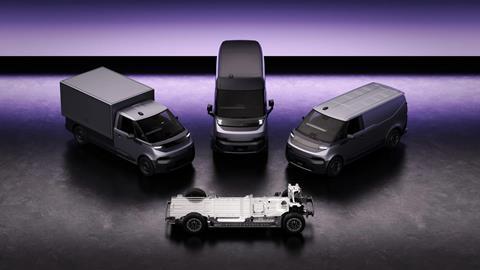
Flexis, the electric van joint venture (JV) formed by Renault, Volvo, and logistics provider CMA CGM, is moving swiftly to establish its place in Europe’s commercial vehicle market. Officially launched in October 2023, the company is set to begin series production in mid-2025 with an initial investment of €1 billion ($1.04bn) including €360 million ($375.6m) already committed. Renault and Volvo each hold a 45% stake, having pledged €300 million ($313m) each, while CMA CGM retains 10% with an investment of €120 million ($124.8m). AMS’ Megan Kelly visited Flexis’ Paris HQ to give you the latest developments.
Batteries will be produced in Europe, and of course we are using the parent companies’ supply chain and their suppliers and vendors”
- Philippe Divry, Flexis CEO
Based in France, the JV is centred around Renault’s Sandouville plant, which has been producing light commercial vehicles (LCVs) since 2014. By leveraging existing manufacturing infrastructure, Flexis is accelerating its industrial ramp-up while maintaining cost efficiency.
A modular platform for cost-effective production
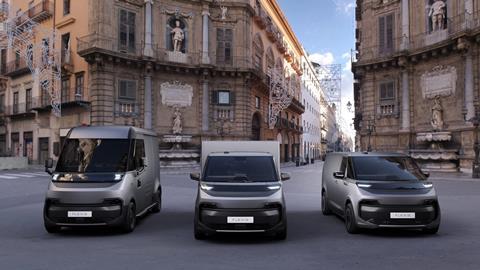
Flexis has unveiled three new electric van models—the Step-In van, the Cargo van, and the Panel van. Each is built on the company’s native skateboard platform, designed to streamline manufacturing and reduce costs. Standardising core vehicle components allows for economies of scale while preserving adaptability across multiple vehicle types.
The company’s CEO, Philippe Divry, highlighted the advantages of this approach. “We are the best of both worlds. We have the flexibility and the agility of a smaller company, but we are able to leverage all the capabilities that our founding parents have,” he said. “That makes us much more able to deliver and execute with this balance.”
Krishnan Sundararajan, COO of Flexis, said: ”Flexis vehicles are built on a highly modular skateboard platform with an 800-volt electric architecture. The compact battery placement at the rear ensures an optimal centre of gravity and contributes to a vehicle height of just 500mm from the ground. This lower floor height is particularly beneficial for delivery operations, as it reduces driver fatigue caused by frequent entry and exit.”
The modular platform and rear-motor configuration enables streamlined assembly while ensuring compatibility with future vehicle developments. This design philosophy positions Flexis to scale production efficiently while maintaining competitive pricing.
Flexis forms localised battery production for enhanced efficiency
Flexis is integrating a European-centric production model, ensuring that key components, including batteries, are sourced and manufactured within the region.
Divry added, “we will have two battery sizes, one offering a standard range and the other a long-range option, as customers require different levels of autonomy for their operations. These batteries will be sourced from two different chemistries and two separate suppliers, both located in Europe. Ensuring localised supply chains is a key part of our strategy to optimise efficiency and minimise logistical risks.”
Battery cells will be produced within the continent and assembled at the Flexis plant. This approach enhances industrial efficiency while minimising supply risks and reducing carbon footprints associated with long-distance component transport.
”Because we have the high-volume platform that allows us to make three models on the same platform, it has a high degree of commonality in parts, which will make the price extremely competitive”
- Krishnan Sundararajan, Flexis COO
“The whole supply chain will mostly be in Europe, which is very good for our industrial reactivity and for the carbon footprint. Batteries will be produced in Europe, and of course we are using the parent companies’ supply chain and their suppliers and vendors,” added Divry.
To further enhance production agility, some suppliers are relocating closer to the factory to integrate directly into the manufacturing process.
Scaling up production with parent company expertise
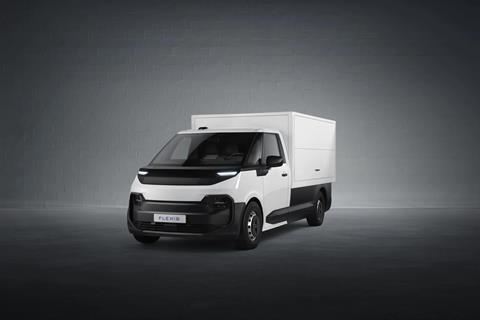
Flexis is capitalising on Renault and Volvo’s extensive industrial and technological resources to accelerate production. By integrating their purchasing power and supplier networks, the company is optimising manufacturing costs while maintaining high-quality standards.
Divry said, ”Flexis is currently in the industrialisation phase, with our first pre-series vehicles set to roll off the production line in the second half of this year. Serial production will commence in mid-2026 at our facility in Sandouville, Normandy, a factory with expertise in light commercial vehicle manufacturing.
“Our commercial strategy involves both direct sales under the Flexis brand and distribution through Renault and Renault Trucks, which are part of the Volvo Group. This dual-channel approach enables us to reach a broad customer base, including major logistics providers as well as small-scale operators such as independent contractors and tradespeople.
”We know that when you start to scatter your efforts you may fail, so we want to first succeed in Europe”
- Philippe Divry, Flexis CEO
“To date, we have signed 10 Letters of Intent with key customers, representing a combined demand of approximately 15,000 vehicles over the first three years. These agreements are the result of extensive collaboration with industry stakeholders to tailor our solutions to real-world operational requirements. Among our partners are, Colis Privé (French last-mile delivery company, part of CMA CGM’s CEVA Logistics division), DPD (International parcel delivery service), and Hive (a UK-based startup focusing on sustainable urban deliveries)”
“Our company benefits significantly from the expertise of our parent companies. Renault Group provides leadership in electric vehicle technology, Volvo Group contributes its deep knowledge of B2B vehicle operations and fleet management, and CMA CGM, a global logistics giant, offers insights into ground transportation operations. This backing gives us access to a broad knowledge base, enabling us to accelerate development and scale production efficiently.”
Sundararajan highlighted the benefits of this synergy. “Because we have the high-volume platform that allows us to make three models on the same platform, it has a high degree of commonality in parts, which will make the price extremely competitive,” he said. “We are also using all the sourcing and purchasing power of our parent companies for suppliers, so we’re leveraging their supply chains.”
Read more Electrification stories
- Solving EV battery pack development, cost and production challenges
- How Henkel is co-developing the EV batteries of the future
- Opel Eisenach’s Grandland EV: a lean manufacturing marvel
- Tesla’s EV battery production and global gigafactory network
This strategic alignment positions Flexis to deliver competitive electric vans at scale while reducing the risks typically associated with new vehicle production ventures.
European focus with future global ambitions
While Flexis is focused on establishing itself in the European market, the company has designed its platform to accommodate global expansion. However, Divry insists that the priority remains ensuring stability and success in Europe before exploring wider markets.
“We know that when you start to scatter your efforts you may fail, so we want to first succeed in Europe,” he said. “We have designed the vehicle so that the platform can later evolve to fit the demands of other continents, but first we want to make sure that we are well on track in Europe.”
By concentrating on efficient production and regional supply networks, Flexis is creating a blueprint for scalable electric commercial vehicle manufacturing. With series production set to begin in 2025, the company is poised to play a significant role in Europe’s transition to electric LCVs.





























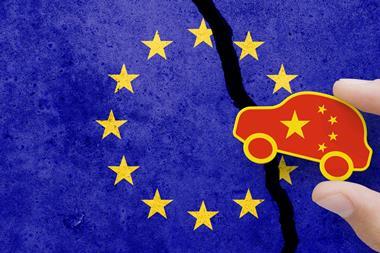


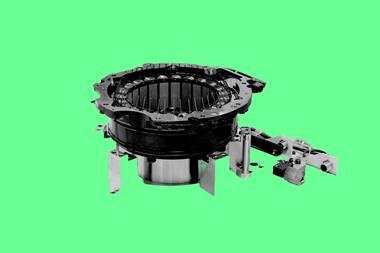
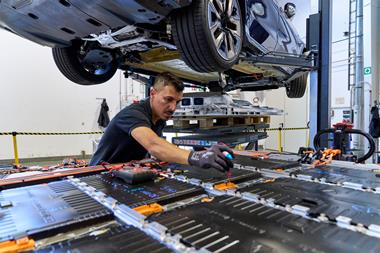
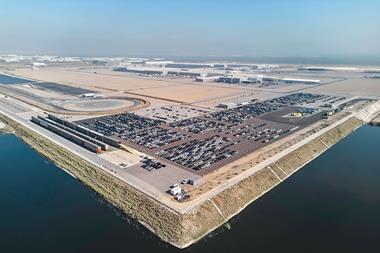



No comments yet